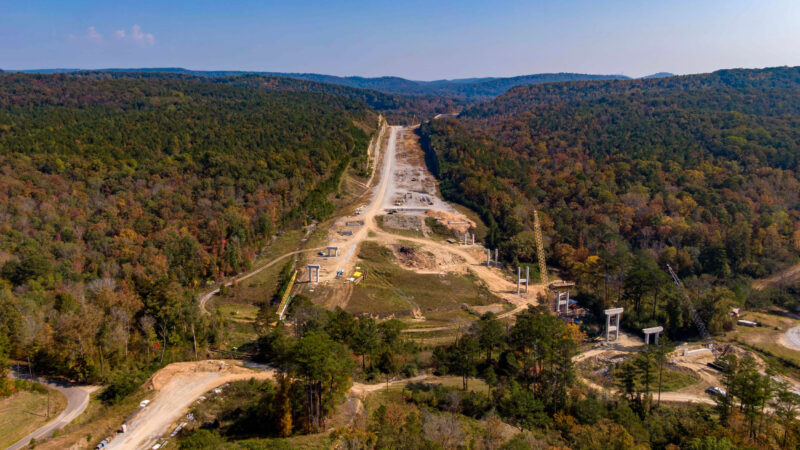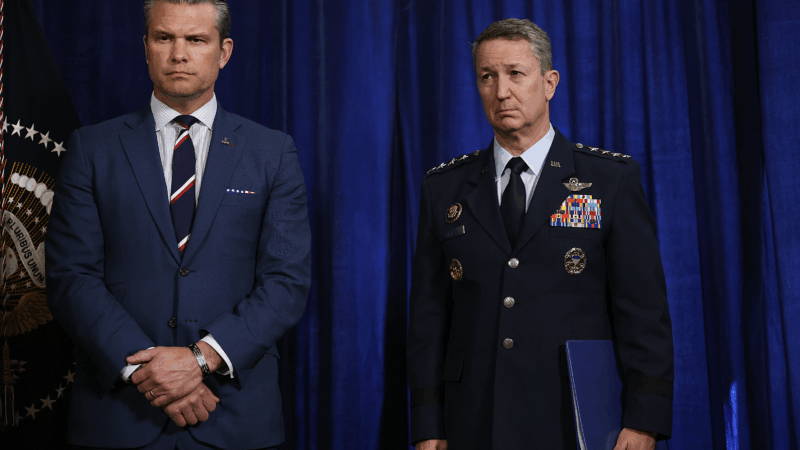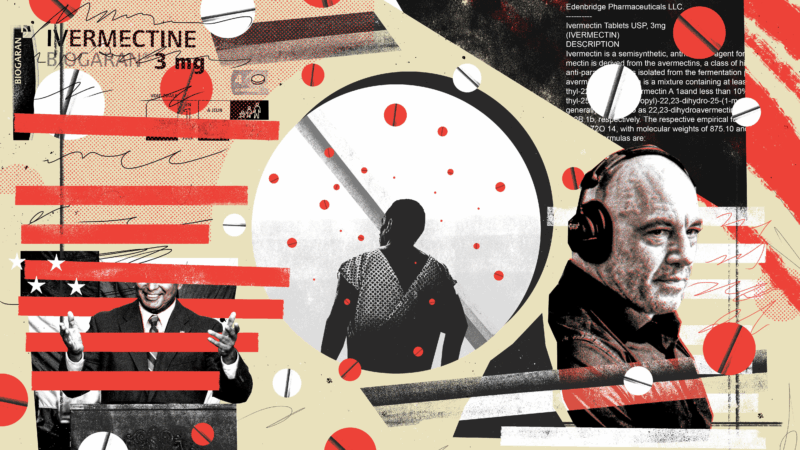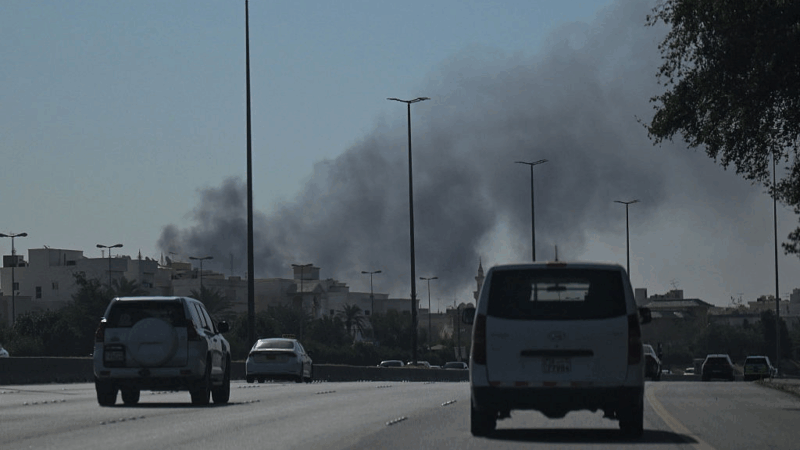Who pays for Alabama’s $5 billion ‘zombie’ highway project? Not Alabama
This article originally appeared on Inside Climate News, a nonprofit, independent news organization that covers climate, energy and the environment. It is republished with permission. Sign up for their newsletter here.
By Dennis Pillion, Inside Climate News
Even though it’s poised to be the most expensive per-mile highway in Alabama—and perhaps the United States—there’s a lot the $5.4 billion Birmingham Northern Beltline project won’t do.
It won’t address any of Alabama’s largest traffic congestion problems, as identified by the Alabama Department of Transportation.
It’s not on the list of the state’s three most-needed interstate highway projects, as described by Lt. Gov. Will Ainsworth.
It won’t reduce traffic through the city center by more than 3 percent, according to the Birmingham Regional Planning Commission.
But it will destroy thousands of acres of forest and require more than 90 crossings of rivers and streams that give the region its drinking water.
The good news, at least for state leaders, is that it won’t cost them a dime.
The entire cost of the Birmingham Beltline will be borne by federal taxpayers, through congressional earmarks that prevent the funds from going to any other use.
The state will not have to contribute any matching funds for the beltline, nor would it be able to use beltline funds for more-needed projects.
“If the state had to weigh this money with other projects, this would not be on their priority list,” said Sarah Stokes, a senior attorney with the Southern Environmental Law Center, which is opposing the beltline construction.
Yet the project moves forward, buoyed by state and local officials who promote it as an economic development initiative rather than a traffic necessity.
A zombie highway returns
The Birmingham Northern Beltline project has been frequently highlighted as a prime example of wasteful government spending since its inception in the 1990s.
In 2012, then-U.S. Rep. Jared Polis (D-Colo.) called the beltline the “Alabama porkway” and an example of a “zombie” project that just wouldn’t die.
The project has been on multiple lists of the country’s largest boondoggles over the years, including by the Public Interest Network, a Denver-based nonprofit.
The criticism seemed to have worked for a while.
Federal funding for the project dried up and construction halted in 2016, after workers cleared and graded a 1.3-mile stretch of road in between two low-volume state highways north of the city. State officials still have not pledged or contributed funding for the project, so construction only moves forward when earmarked federal funds are available.
The road will not be finished for decades under the most optimistic estimates, and may never be completed at all.

Analysis by the Public Interest Network noted that Alabama’s unwillingness to pay for the beltline “suggests that the project is not a high priority for state transportation needs.”
“The [beltline] project relies on intermittent federal funding, raising the specter of a highway project that is not only expensive and environmentally damaging, but is also never finished,” the watchdog organization said in a 2020 report.
Polis’ zombie analogy proved apt: Birmingham’s beltline rose from the dead in 2022, with $489 million in new funding as part of the Infrastructure Investment and Jobs Act.
Reuters and others have credited then-U.S. Sen. Richard Shelby (R-Ala.) with getting the project added to the Appalachian Development Highway System in 2003, paving the way for future earmarks. Then Shelby and U.S. Sen. Joe Manchin (D-W.Va.) got federal highway funding restored to the Appalachian highway system in the 2022 Jobs Act, allowing the project to move forward again.
According to analysis from The Associated Press, Shelby secured more than $648 million for projects in Alabama in the final version of the bill, the most of any member of Congress. Shelby, 90, retired from the Senate in 2023.
Both Shelby and U.S. Rep. Gary Palmer (R-Ala.), who trumpeted the beltline funding, voted against the bill.
Palmer and Shelby did not respond to requests for comment.
How much will It cost? How long will it take?
Cost estimates on the project vary by $1 billion or so, with the state estimating the cost of beltline construction at just over $4 billion.
Previous federal estimates range from $4.7 billion in 2012 to $5.4 billion in 2014, meaning that they don’t encompass the last decade of inflation. The $5.4 billion estimate would cost about $104 million per mile, the most expensive per-mile highway in the country, Reuters reported in 2022.
The costs may well be higher, especially considering the work will not be completed for decades, if ever. Planning documents show that the Alabama Department of Transportation is not expected to finalize the route or purchase land for the western half of the project by 2044.
What else could $5 billion do?
The cost of the beltline is a staggering figure given Alabama’s other transportation needs.
A 2016 study by The Road Improvement Program (TRIP), a nonprofit, attempted to determine Alabama’s 50 most-needed road improvement projects. The Northern Beltline was not listed among them. All 50 projects were estimated to cost $4.6 billion, likely less than the cost of the beltline alone.
Most of the Birmingham area’s significant traffic gridlocks occur on the highways connecting downtown with suburbs south of the city, according to the Regional Planning Commission of Greater Birmingham. A northern beltway would not directly address those chokepoints.
Ainsworth—seen as a likely contender for governor in 2026—has promoted a campaign to widen Interstate 65, which runs the length of the state, from the Tennessee state line in the north to Mobile on the Gulf Coast, passing through Birmingham and Montgomery along the way.
He’s dubbed the project “The Ainsworth Plan.” Billboards promoting the idea have begun popping up along I-65.
President-elect Donald Trump told supporters at a campaign event in Montgomery last year that he supported the I-65 widening and that “we’ll do that the first day.”
Ainsworth cited widening I-65 as Alabama’s No. 2 infrastructure priority after a new bridge on Interstate 10 in Mobile, connecting the port city to the rapidly growing suburbs on the other side of Mobile Bay. That project is expected to cost $3.5 billion.
Ainsworth’s office did not respond to requests for comment.
Alabama receives roughly $1 billion per year in federal highway funding, not counting the beltline funds. According to Alabama Department of Transportation documents, most highway projects are carried out with 80 percent federal funding and a 20 percent state match, coming from fuel taxes or other sources.
Gov. Kay Ivey has also prioritized widening U.S. 43, a rural highway through sparsely populated areas of southwest Alabama. Ainsworth has criticized that plan, saying the funds are more needed elsewhere.
All those projects are competing for limited federal dollars, with significant state matching funds also required. The beltline has escaped these kinds of political skirmishes because of its dedicated federal funding.
Stokes, with the Southern Environmental Law Center, said the beltline is a poor use of public funds, but Alabama has little incentive not to build it because of the earmarked funding.
“I just think that we, as citizens, need to wake up to the fact that public officials are spending our money in unwise, harmful and violently destructive ways,” she said. “And the Northern Beltline is one of those ways.”
Hegseth: ‘We didn’t start this war but under President Trump we’re finishing it’
The remarks are the first to reporters since the U.S.-Israeli military operations against Iran began Saturday despite weeks of talks designed to stave off a conflict.
Ivermectin is making a post-pandemic comeback, among cancer patients
The anti-parasitic drug became a household name during the COVID-19 pandemic, and it is now being embraced as an alternative treatment for cancer. It is as politically polarizing as ever.
Rep. Adam Smith on the U.S. strikes on Iran and the debate over Trump’s war powers
NPR's Leila Fadel asks Democratic Rep. Adam Smith of Washington, the ranking member on the House Armed Services Committee, about President Trump's unilateral authorization to strike Iran.
Iran war widens, threatening to engulf Lebanon
The war over Iran engulfed more of the Middle East and beyond on Monday as Lebanon's militant group Hezbollah responded to the killing of Iran's spiritual leader with its first attack on Israel in more than a year.
Peer pressure can make this clownfish change its stripes
Tomato clownfish, in response to an unpredictable world, appear capable of adjusting when they lose their stripes based on cues from other fish and their habitat, a new study in PLOS Biology finds.
Hezbollah strikes Israel as American and Israeli planes pound Iran
Iran and Iranian-backed militias fired missiles at Israel and Arab states, apparently hitting the U.S. Embassy compound in Kuwait, while Israel and the United States pounded targets in Iran on Monday.






